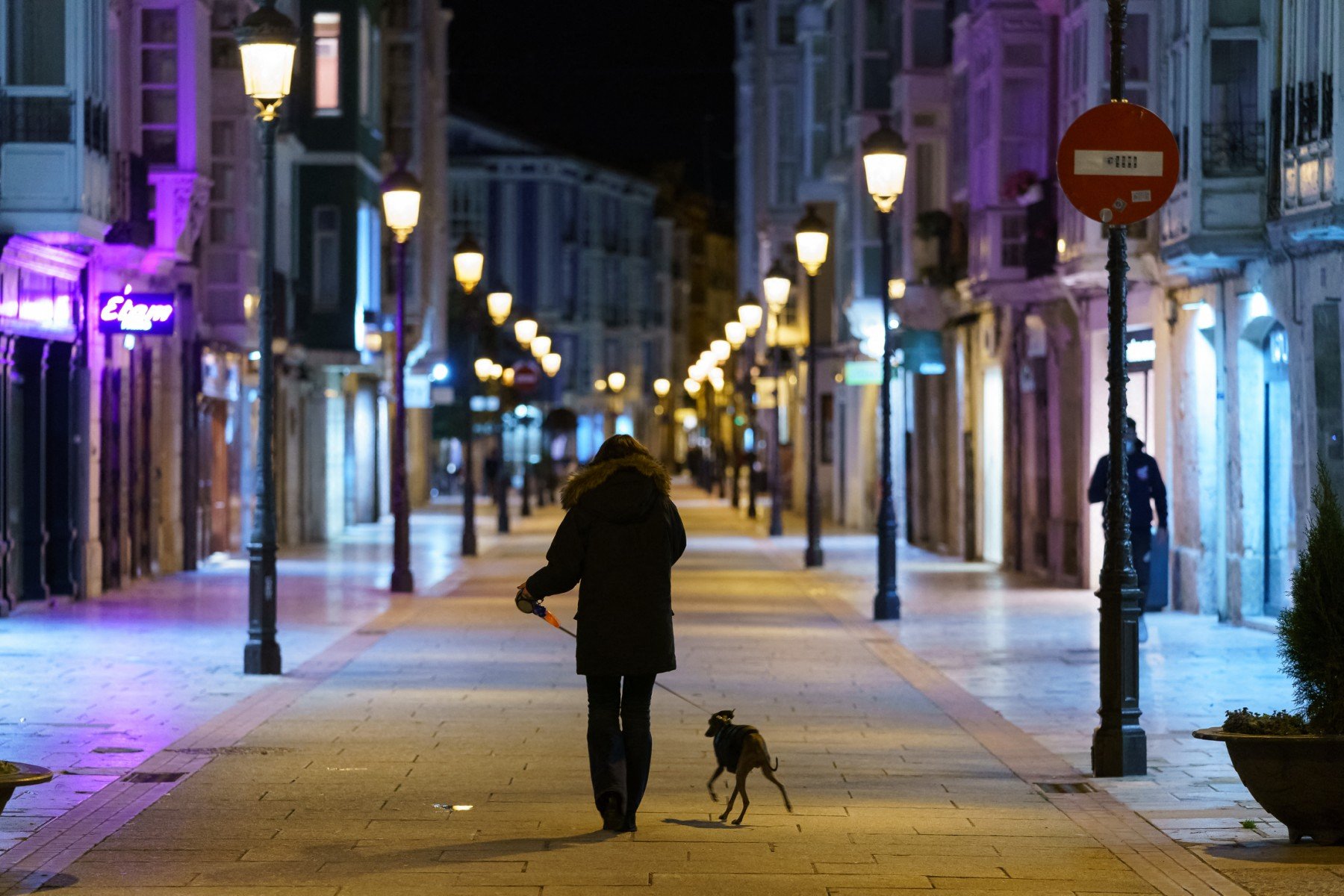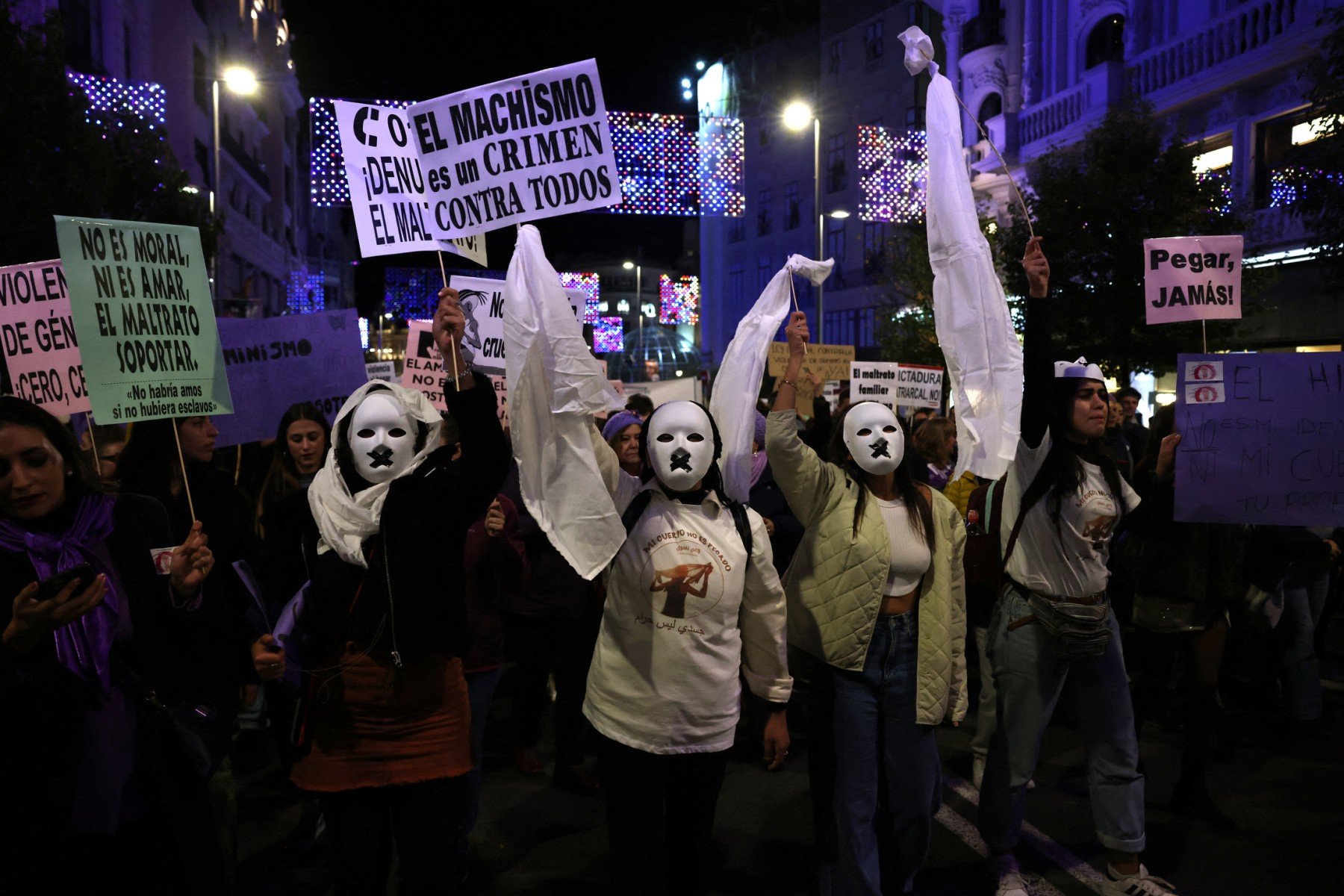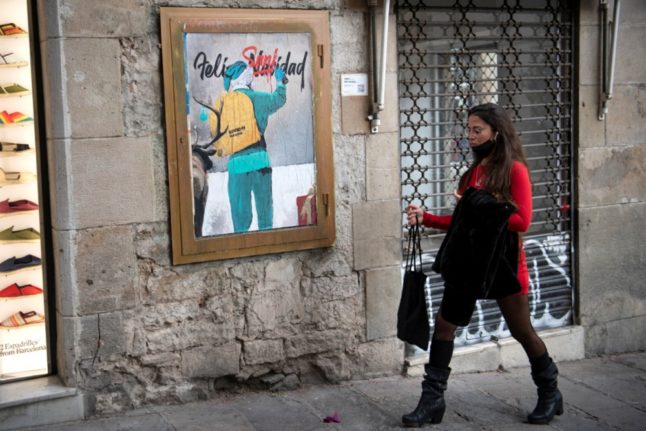Since moving from the U.S. to Spain, I’ve noticed a shift in my day-to-day; I feel generally safe.
I don’t feel that tingle of caution in my spine that was a familiar companion in the United States.
That’s not to say Spain is totally safe; after reaching its 2021 lowest crime rate in recent history, Spain saw an increase in criminality between 2022 and 2023.
However, after living in American cities, crime just seems different on this side of the Atlantic.
With safety being an important consideration when relocating, I reached out to American women throughout Spain, curious if their experiences and feelings were similar to my own.
Fear for your belongings, not your life
There was a theme to my interviews with American women in Spain; crime was an annoyance to deal with but, for the most part, not something that made them fear for their safety.
“In the U.S., my concern was more about physical harm, while in Spain, my main worry is the risk of being robbed. I avoid wearing expensive jewellery here, and locals keep reminding me not to put my phone in my back pocket,” says Cecile W., who recently relocated to Barcelona from San Diego, after living in Tennessee, Colorado, Arizona, D.C., Rhode Island, Maryland, and New York.
Gun violence was a common theme during my discussions with American women in Spain.
“I’ve travelled throughout Spain, and I just feel safe here. Even when I was a tourist, I didn’t worry — other than being aware of pickpockets, of course” says Maya, a 28-year-old stand-up comedian who moved from Barcelona to Madrid two years ago.
“Here, I don’t worry someone is going to shoot me at a gas station if we get into an argument,” she continues, without the slightest hint of comedy.
Madrid, Spain’s capital city doesn’t have the same reputation for theft as Barcelona, but you’ll still want to avoid flashing expensive things, or, as my Colombian friends told me, “Don’t give papaya.”

Stats for thought
Despite being ranked 31 on the Global Peace Index, Spain’s recent uptick in crime has both residents and politicians on alert.
In 2023, there was a 12 percent increase in crimes against sexual freedom (from 13,437 to 15,051).
Although Spain’s Ministry of the Interior suggests this can be partly attributed to increased awareness and the recently passed “only yes is yes” law, the jump is significant.
On the other side of the Atlantic, my home country, the United States ranks 129th on the Global Peace Index and averages 463,634 reports of sexual violence annually.
Accounting for population size, the United States still has a significantly higher rate of sexual violence.
READ ALSO: What to do if you’re in an abusive relationship in Spain
Regarding murders, in 2021, America’s intentional homicide rate was 7 times that of Spain, according to the World Bank.
The U.S. has certainly earned its reputation for violence, but Spain isn’t without its risks. You may be less concerned about gun violence in Spain, but you’ll want to keep a close eye on your belongings; the most common crimes in Spain are against property (such as theft) and increased by 3.6% between 2022 and 2023.
The Balearic Islands, Madrid, and Catalonia (home to Barcelona) have the highest crime rates, while Galicia in the north and Extremadura in the south boast some of the country’s lowest crime rates.

Just how worried should you be about pickpockets in Spain?
Having your things stolen isn’t nice, but when you’re used to worrying about violent crimes, theft can feel like a minor concern.
Last week, I spoke about rising crime rates with a group of Guárdia Urbana officers (Catalonia’s local police force) in Barcelona. A young officer spoke up, “Look, you’re not going to get shot,” he told me. Crimes stats support his statement; in 2021, 87.6% of crimes in Barcelona didn’t involve weapons. Thefts in the Catalan city had decreased between 2019 and 2021, likely due to the drop in tourism.
“I’m more worried about being robbed in Málaga than I was in Pittsburgh, but I don’t feel unsafe in Málaga, or like I need to worry about being followed or harmed,” says Carolina, a forty-year-old remote worker who moved to Spain two years ago.
Recent years have seen increased thefts in Málaga, but crime in the province remains relatively low.
The secret to Spain’s reputation for pickpockets could be in their laws, which distinguish between theft and robbery; the ladder involving violence and coming with greater penalties. Theft of fewer than 400 euros in value is considered a misdemeanour and charged with a fine — penalties don’t increase for repeat offenders. Spain also differentiates between robberies with and without weapons, charging a greater sentence when a weapon is used to intimidate — even if the victim is unharmed.
If you look around Spanish cities, you can likely guess the locals by the bags they carry — usually something they can keep close to the body that doesn’t have many external pockets. Theft may not be the nicest thing, but coming from the States, I’m happy to trade property security for personal security.
Assault, harassment, and generally just being a woman
Personally, I feel it’s easier to be a woman in Spain than in the United States; in my experience harassment and disrespect are less tolerated here.
But being accustomed to chauvinism may also make American women too relaxed. While Spain is generally safe compared to the United States, some cities, including Málaga, and Barcelona have seen an ongoing increase in sexual abuse, with Barcelona reporting 121 cases in 2022, the same year Spain’s new Law on the Guarantee of Sexual Freedom, “only yes is yes” passed.
Intimate partner violence is also a concern, with a steady increase in reports of domestic violence. In 2022, the overall rate of gender violence was 1.5 per every 1000 women. Despite these statistics, Spain is one of the top five EU countries for gender equality and the leftist coalition government hasn’t been shy about its dedication to increased protections. The country that shocked the world with its since amended lax rap laws just years ago shows commitment to a safer future.
READ ALSO: Death of the Iberian macho – What the Rubiales kiss uproar says about Spain

The same isn’t true in the United States, which is experiencing a steady attack on women’s rights. When I travel there, it’s clear the “boys will be boys” mentality is alive and well. Cecile grew accustomed to a generalized fear in American cities; “I travel throughout the States for work, and I’m constantly checking my back, especially in hotels. If there’s a man in the elevator with me, I don’t walk straight to my room. Instead, I do a lap around the corridor until he’s gone,” she told me.
Carolina still carries her keys in her hand when walking alone at night in Málaga, a habit I’m familiar with. I wasn’t sure how well I could protect myself with a small house key, but it’s one of many safety precautions U.S. women are familiar with.
READ ALSO: How Spain is struggling to curb the scourge of femicide
“I never experience any violent harassment from men in New York, just the usual catcalls from construction workers; things like hey baby, hey mamma, you know, the usual,” says Emily, who told me she’s not experienced the same in Barcelona. Cecile told me she’s become desensitized to catcalling after living in New York but hasn’t experienced anything similar in Madrid or Barcelona. Personally, I seldom experience street harassment in Barcelona, whereas it was a daily occurrence in New York.
When I think of safety in Spain versus in the United States, the overall experience is just different. Like Cecile, I feel as if I have more space in my brain now that I don’t have to keep a constant guard.
Perhaps this is part of the bond between American women living in Spain — a collective exhale.



 Please whitelist us to continue reading.
Please whitelist us to continue reading.
Member comments